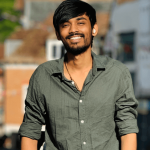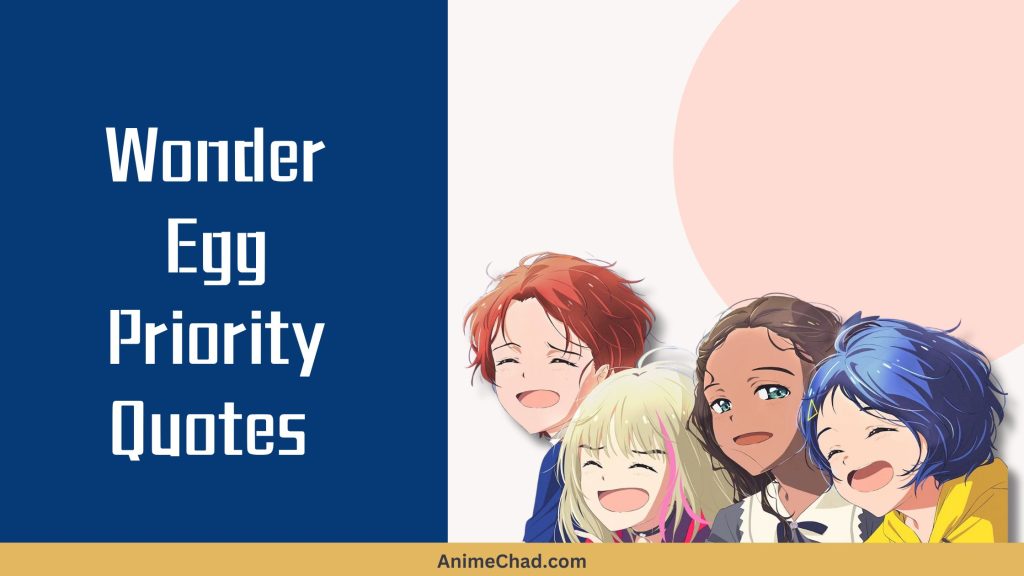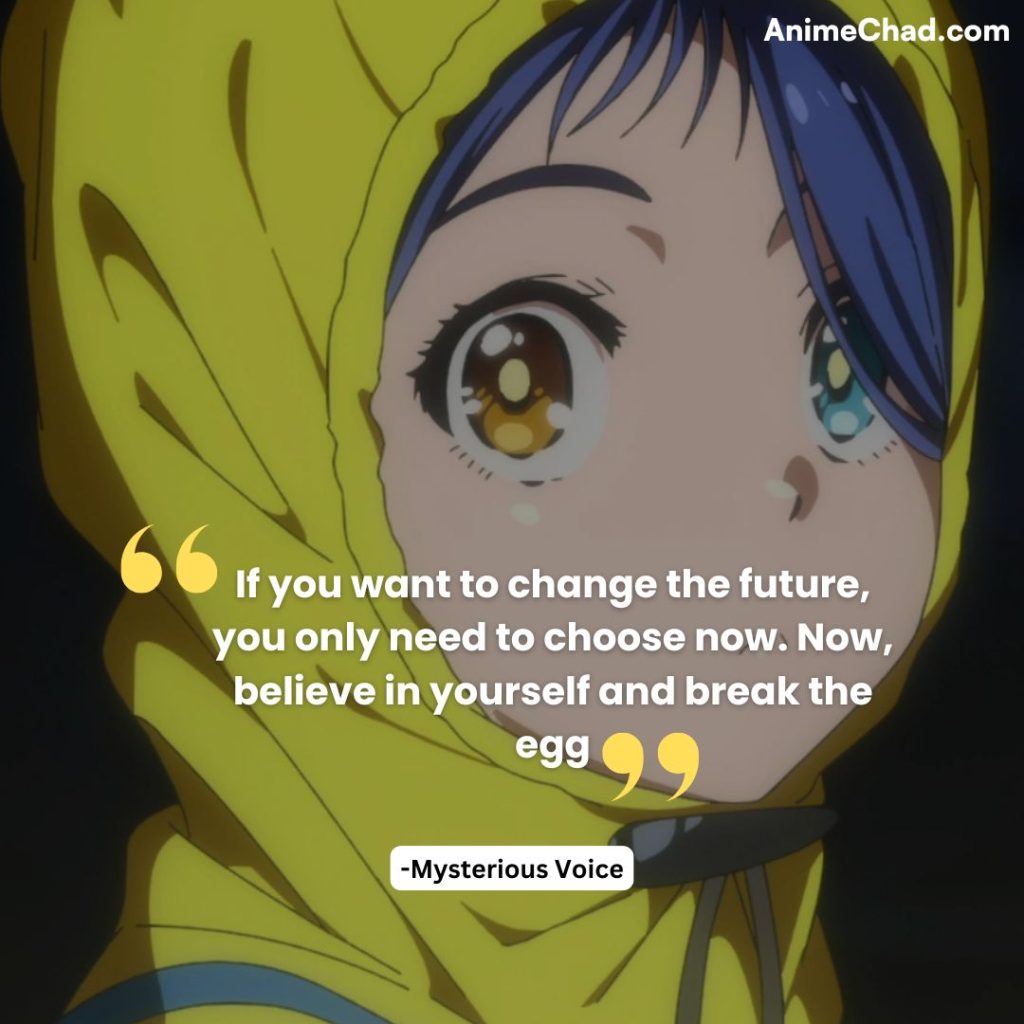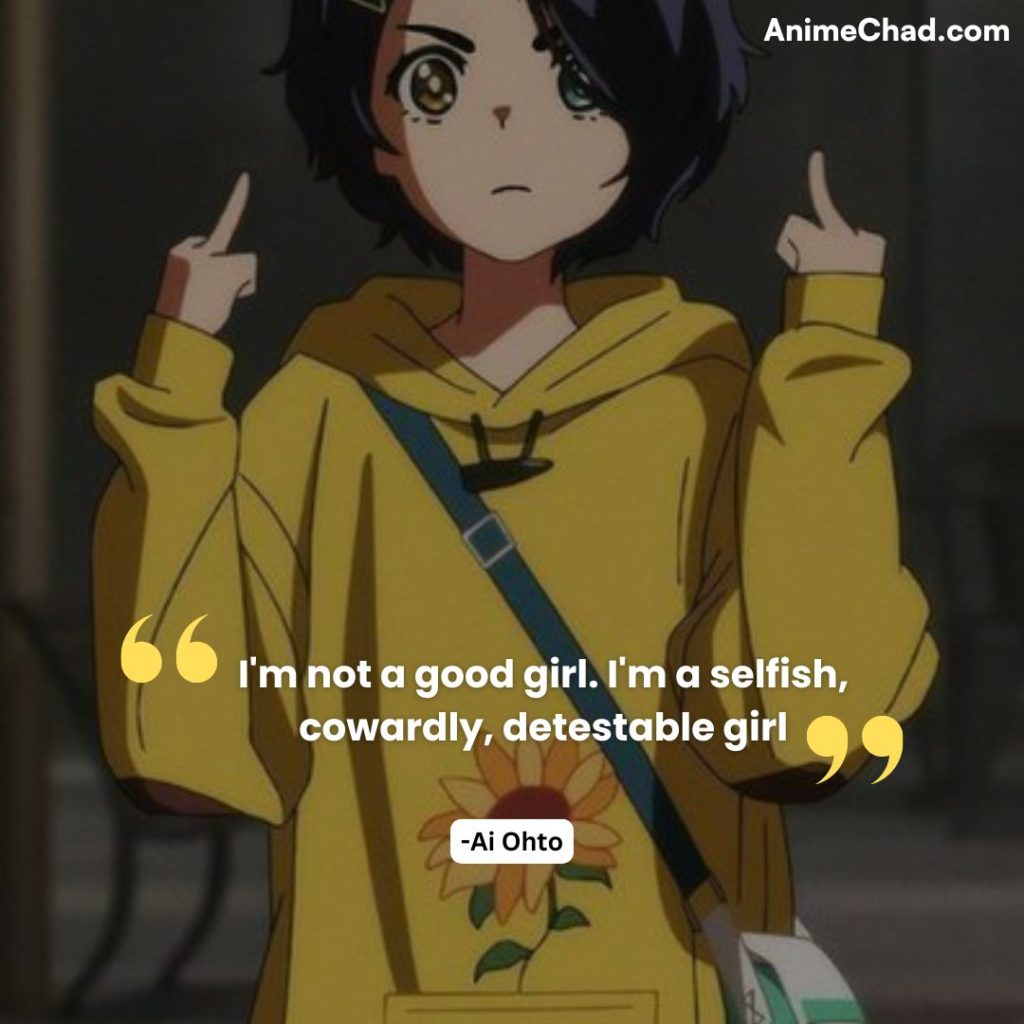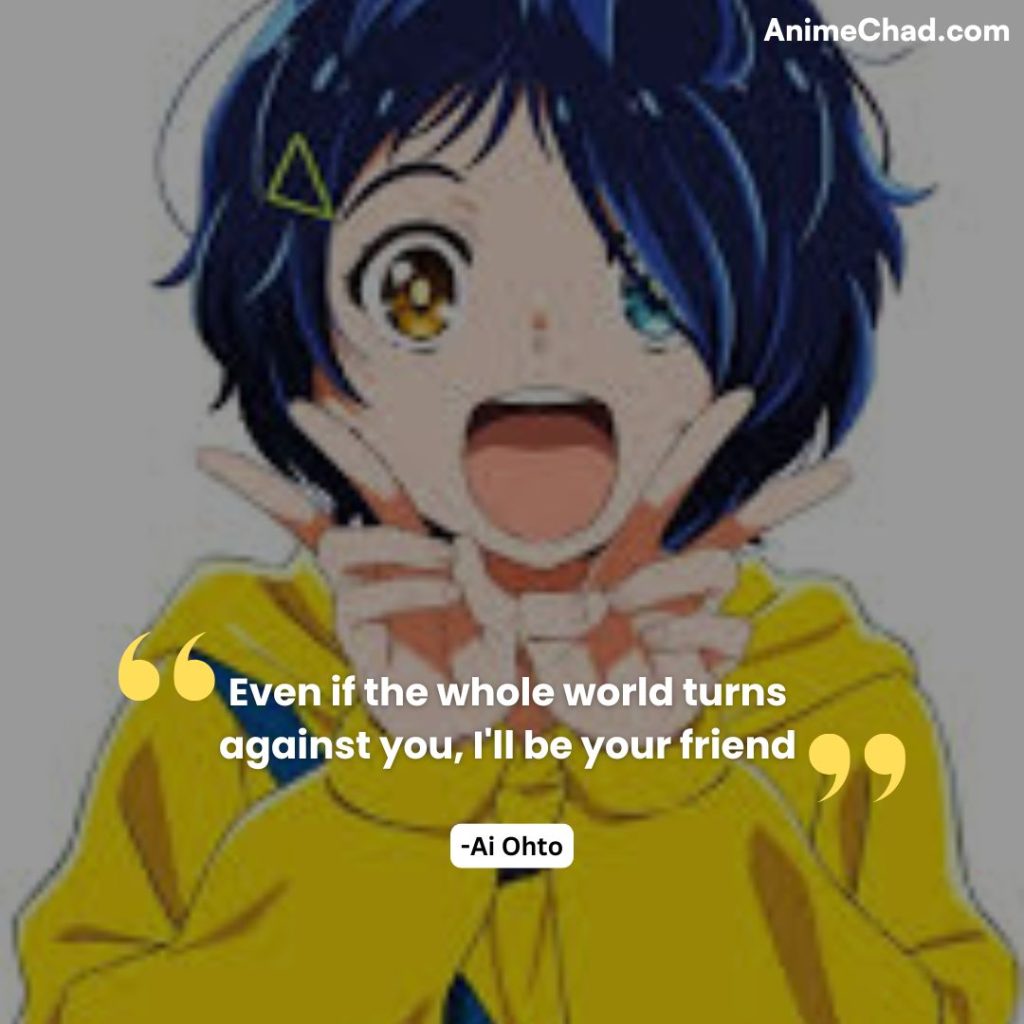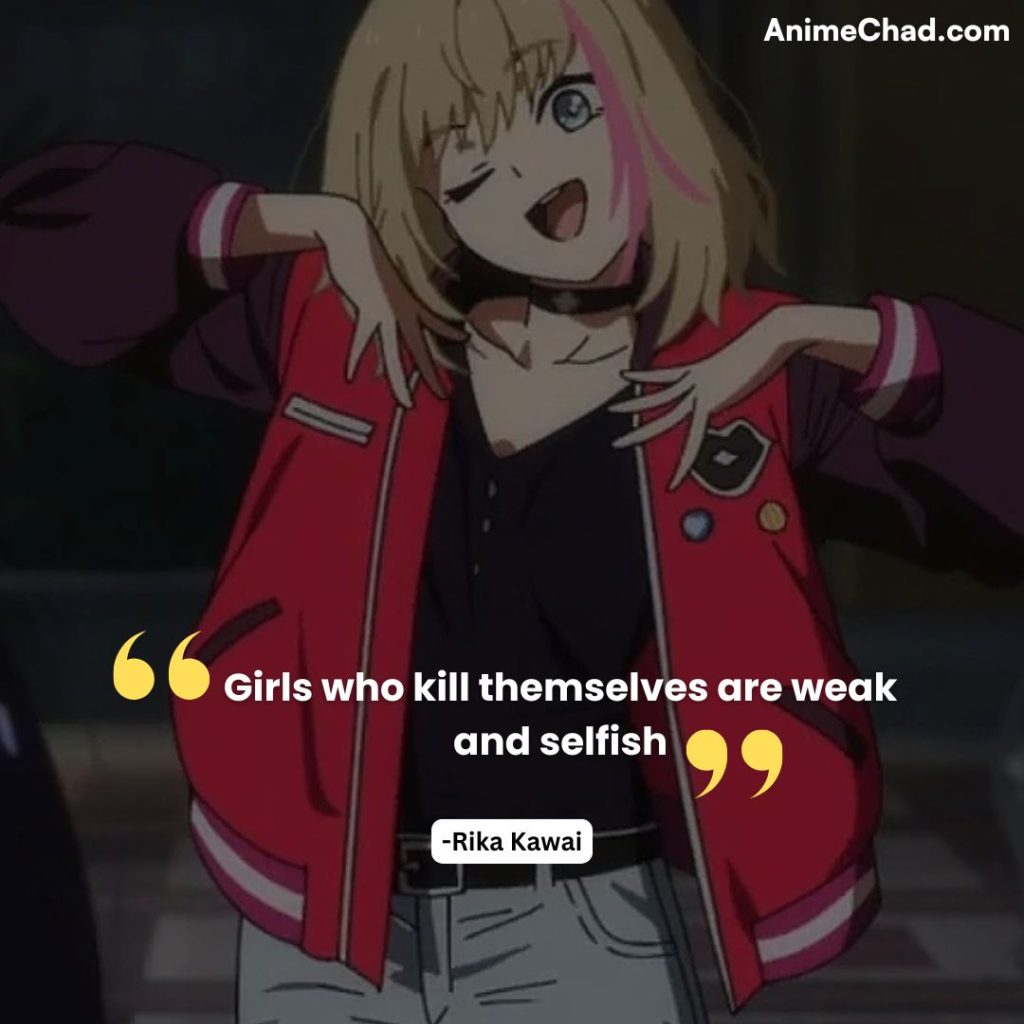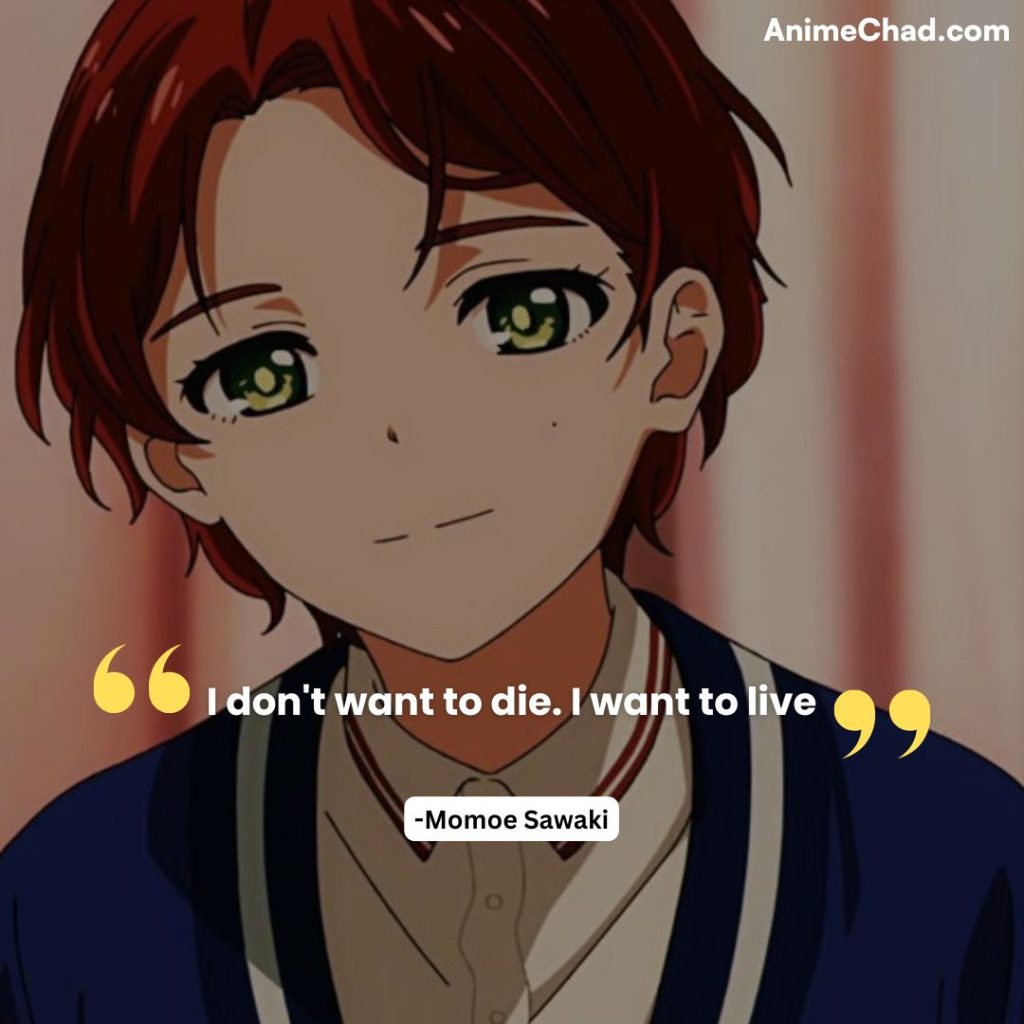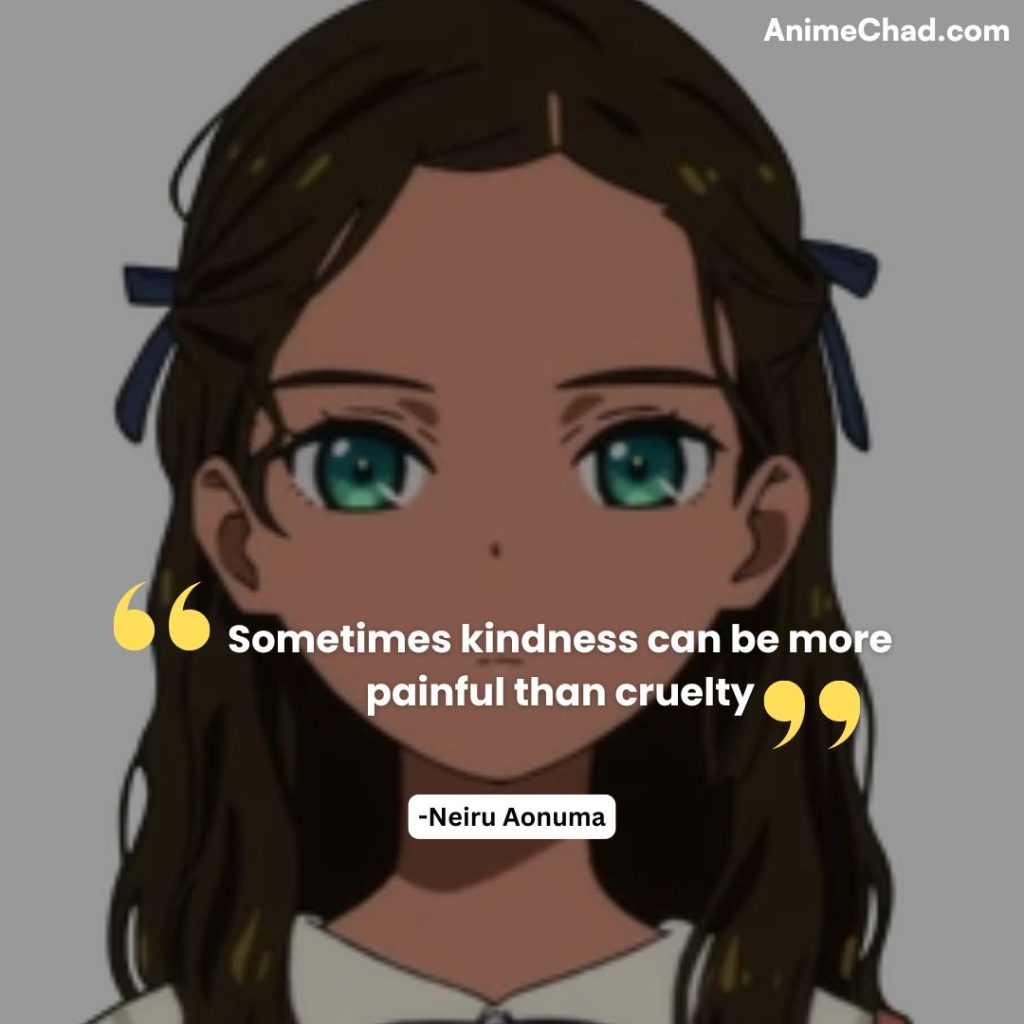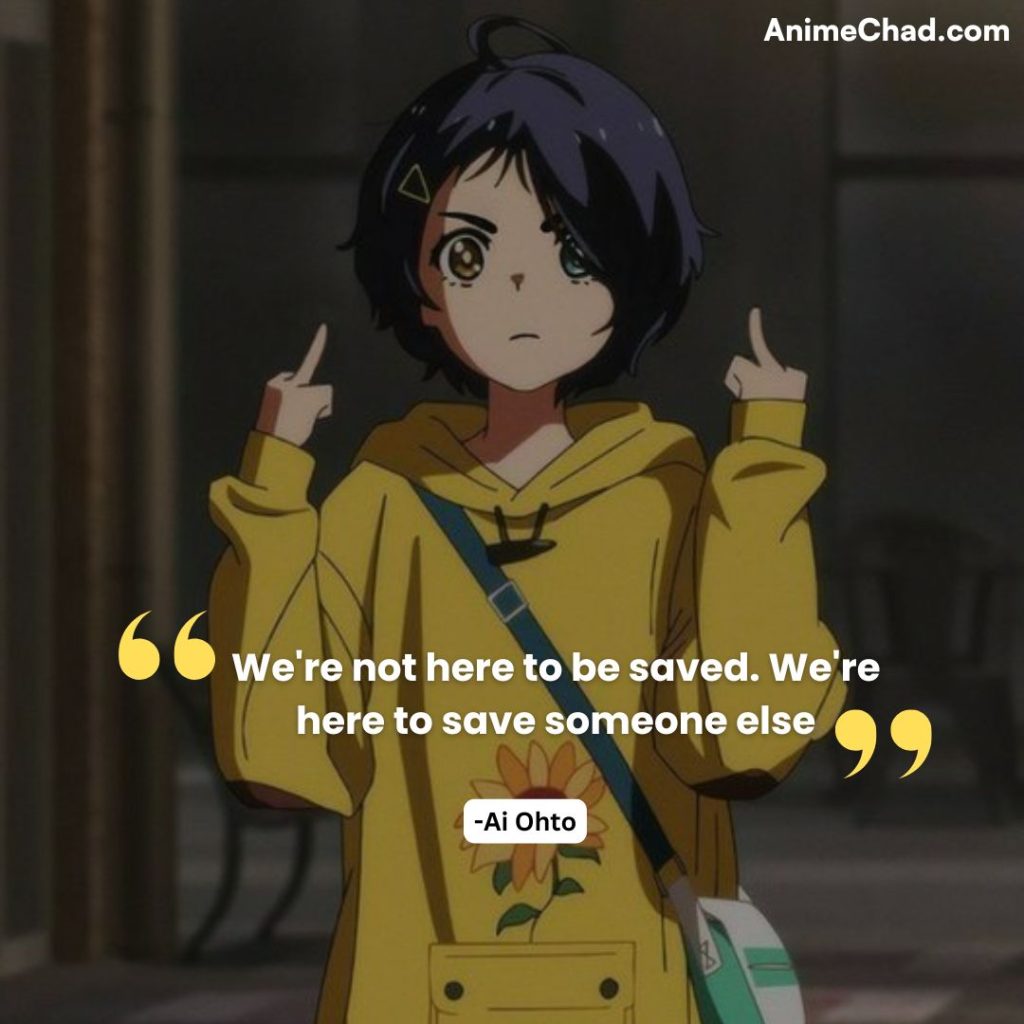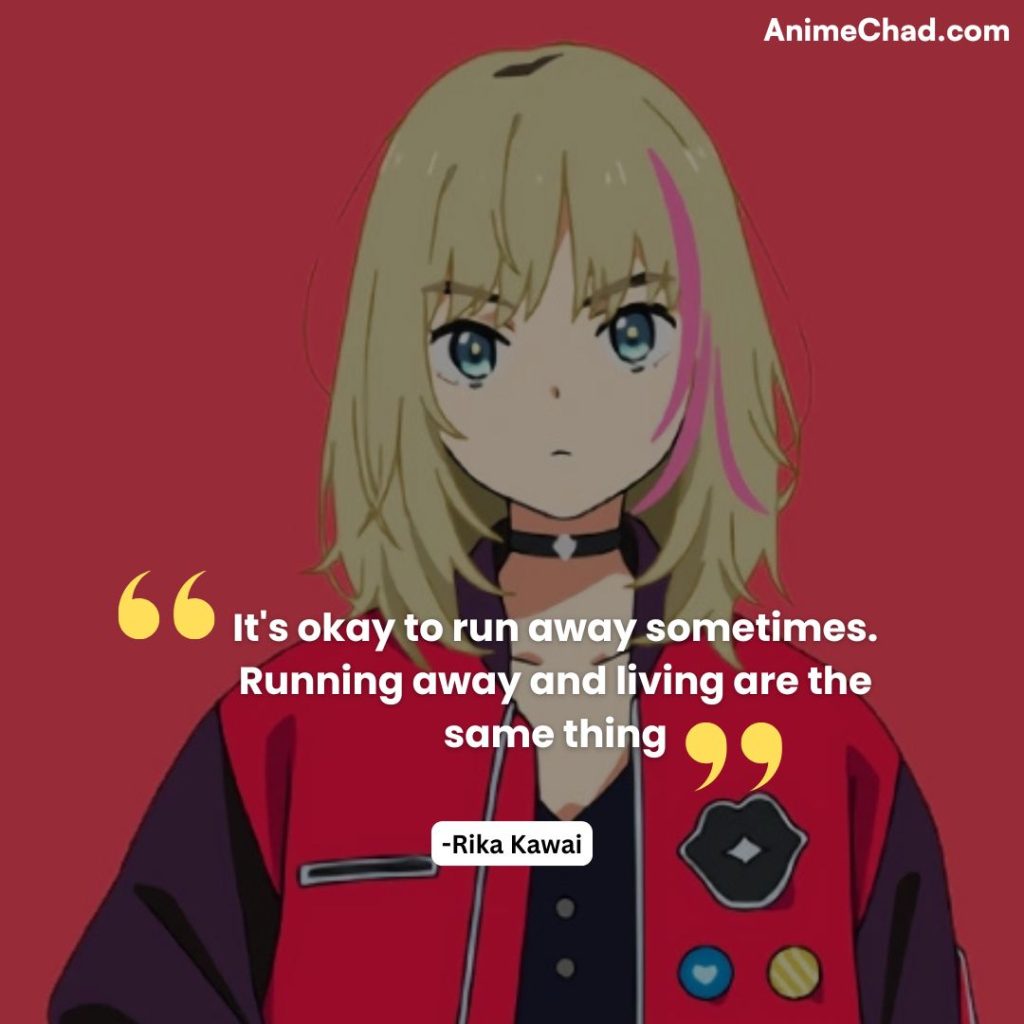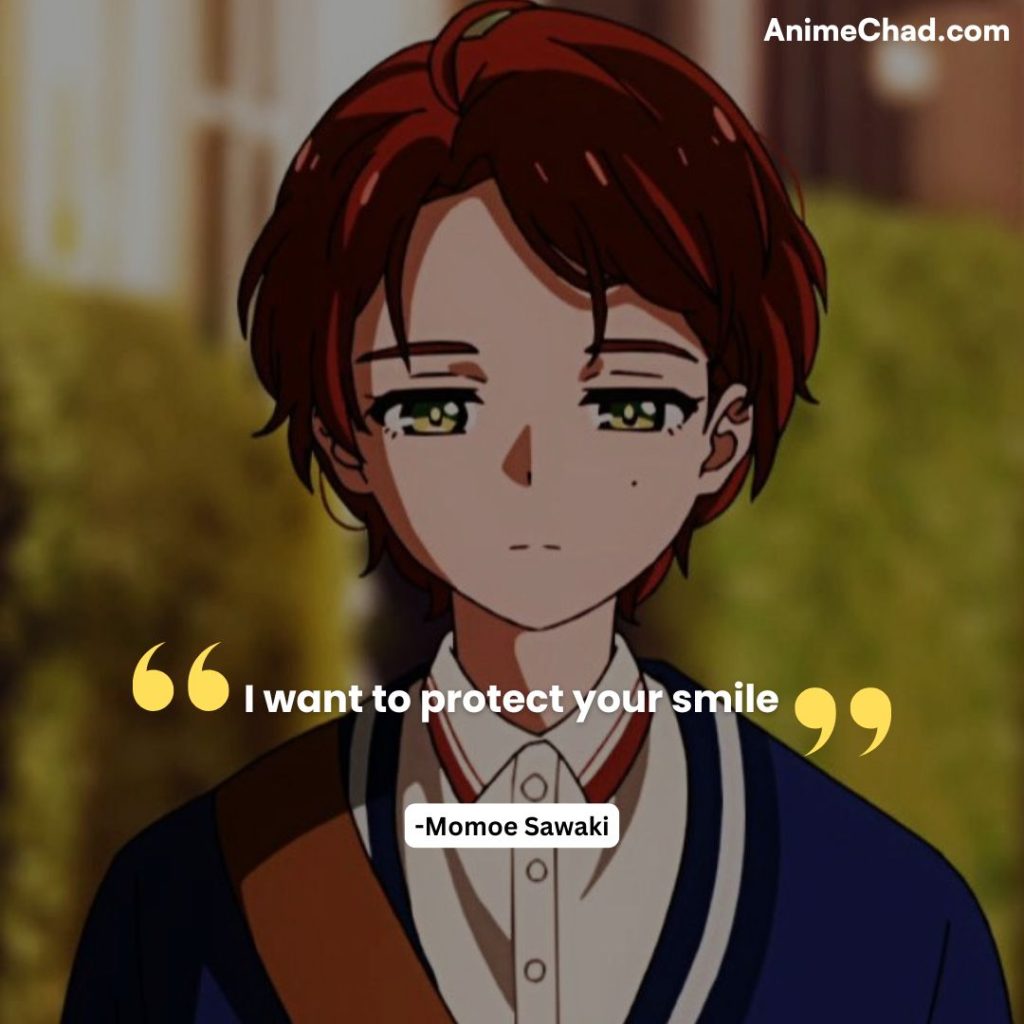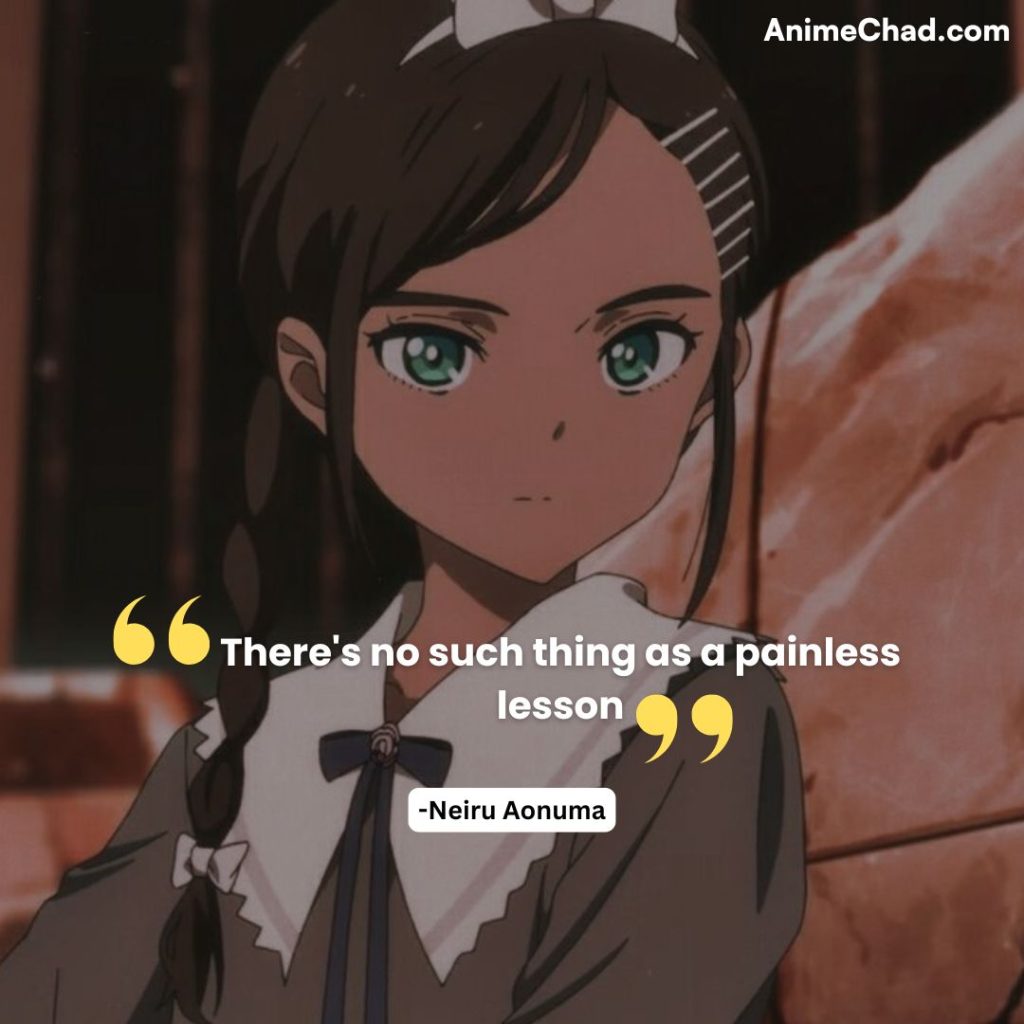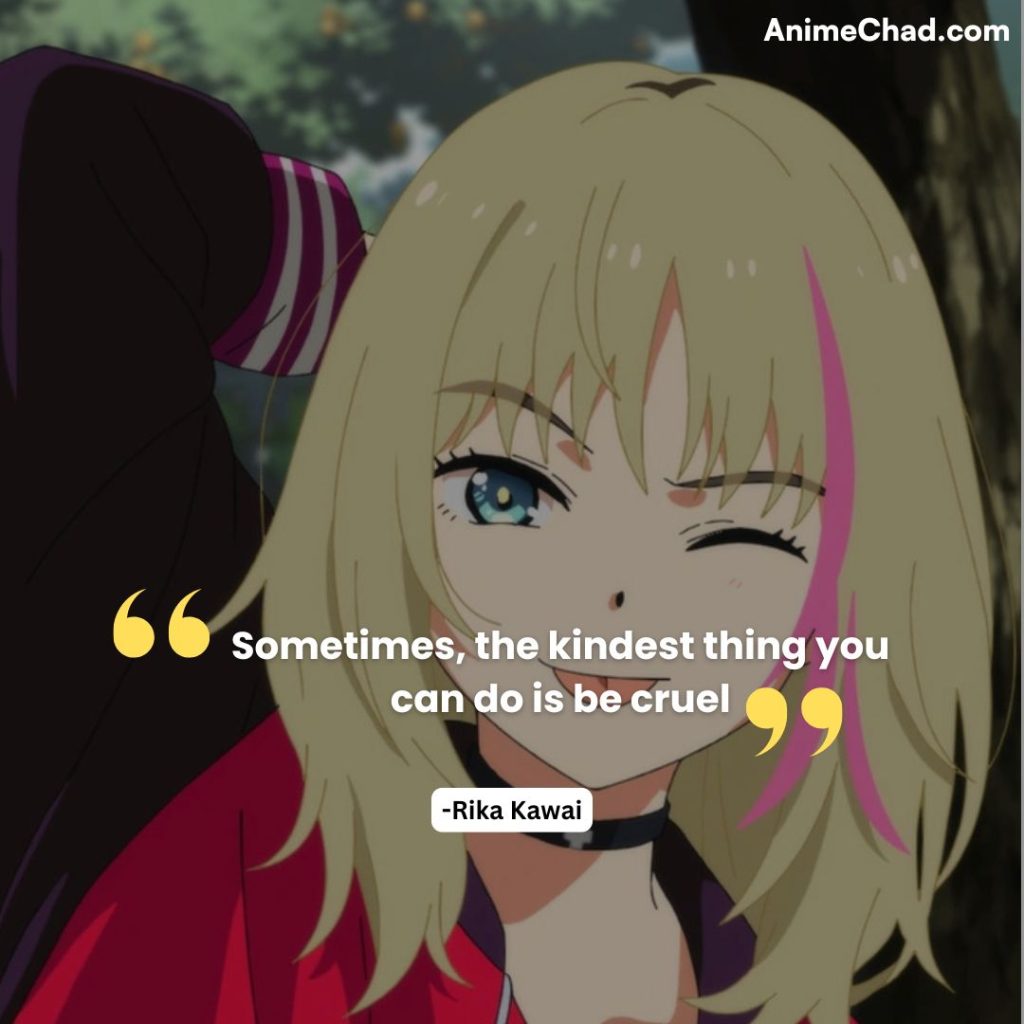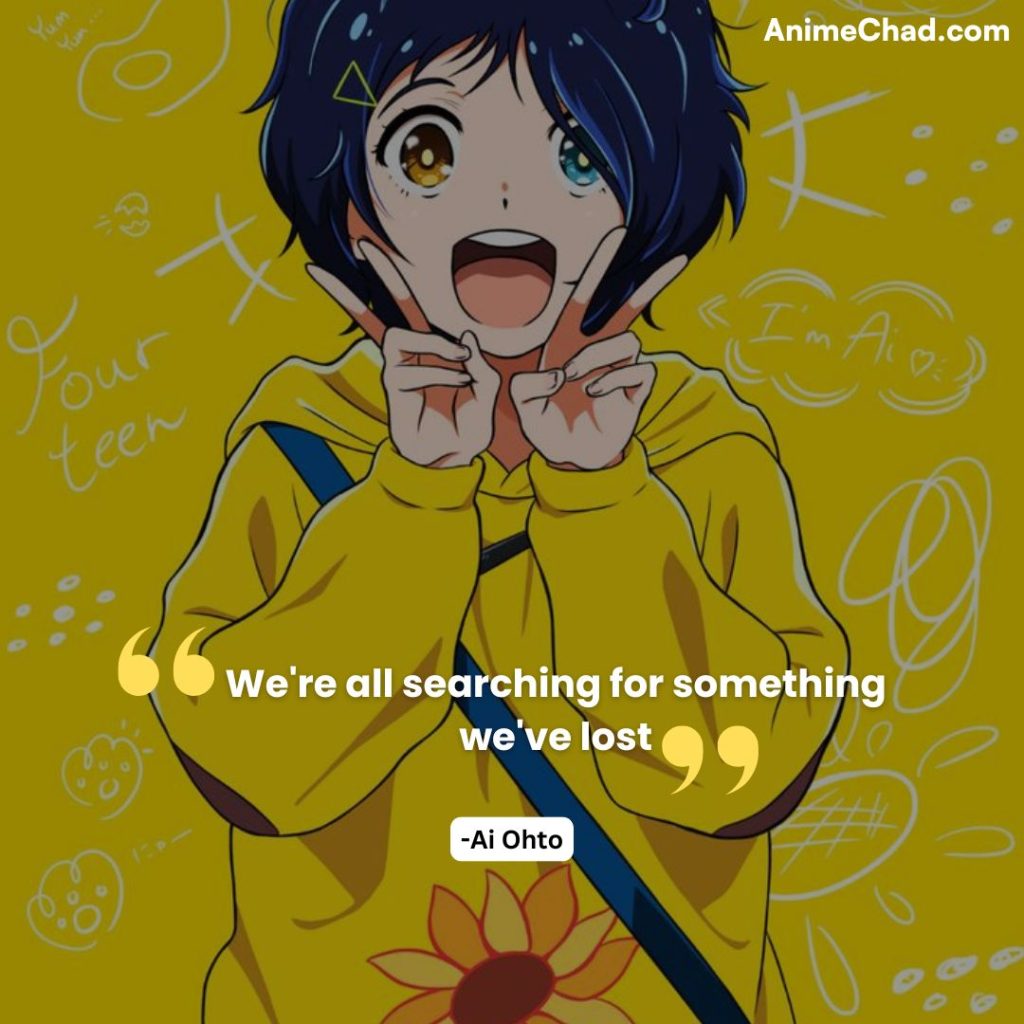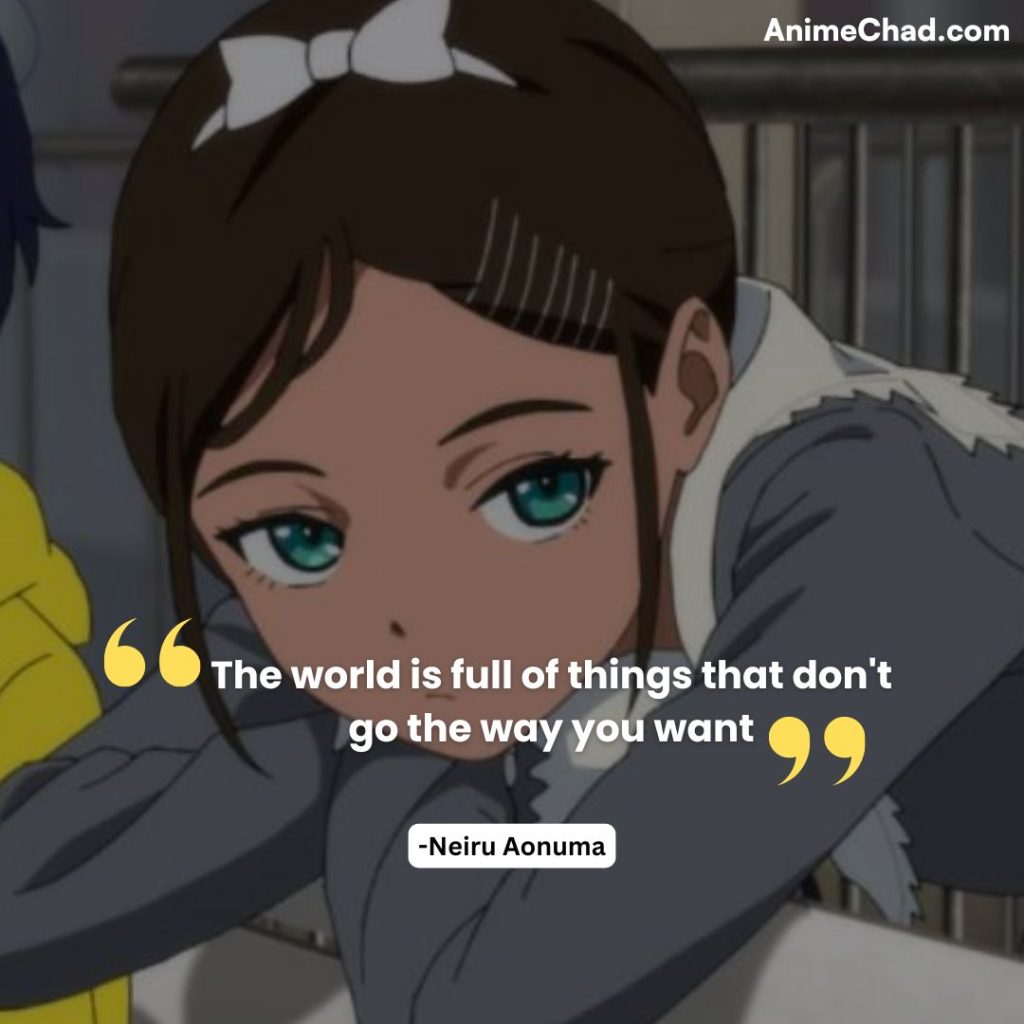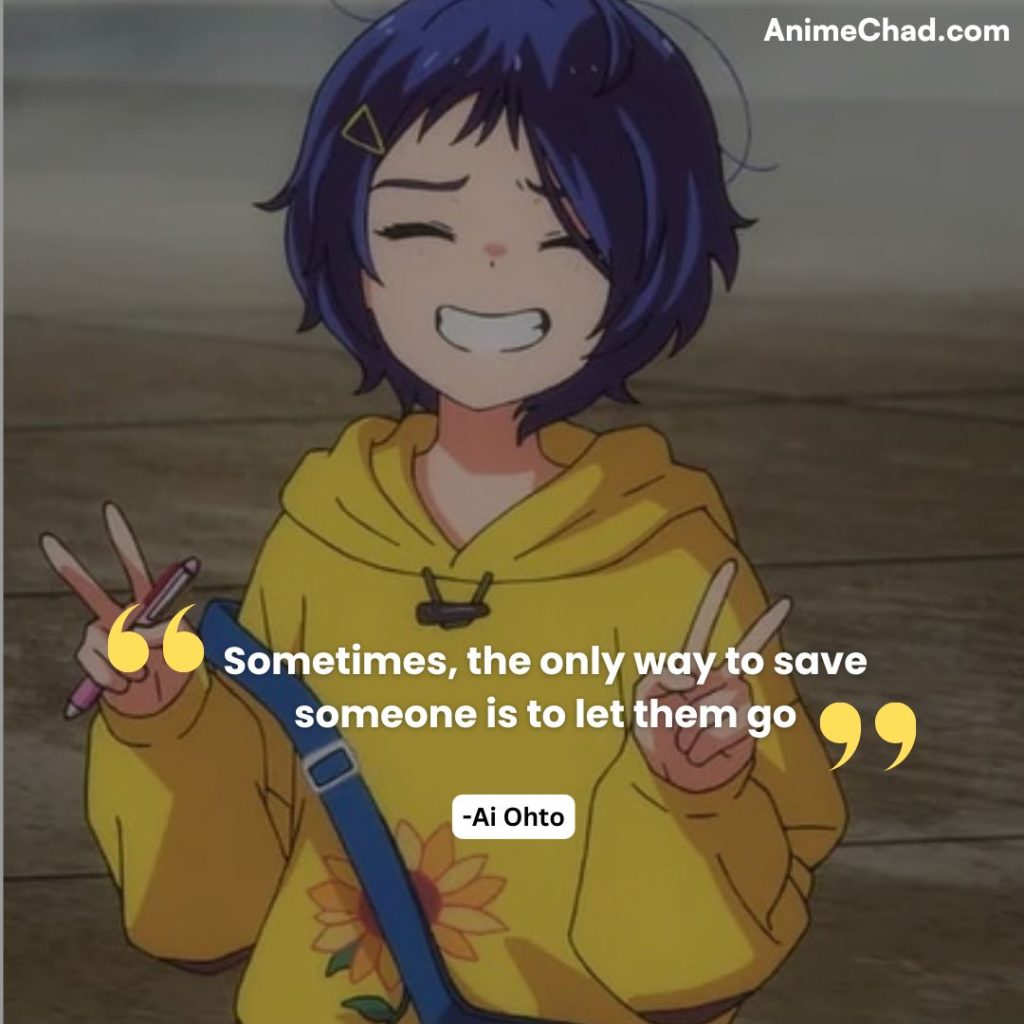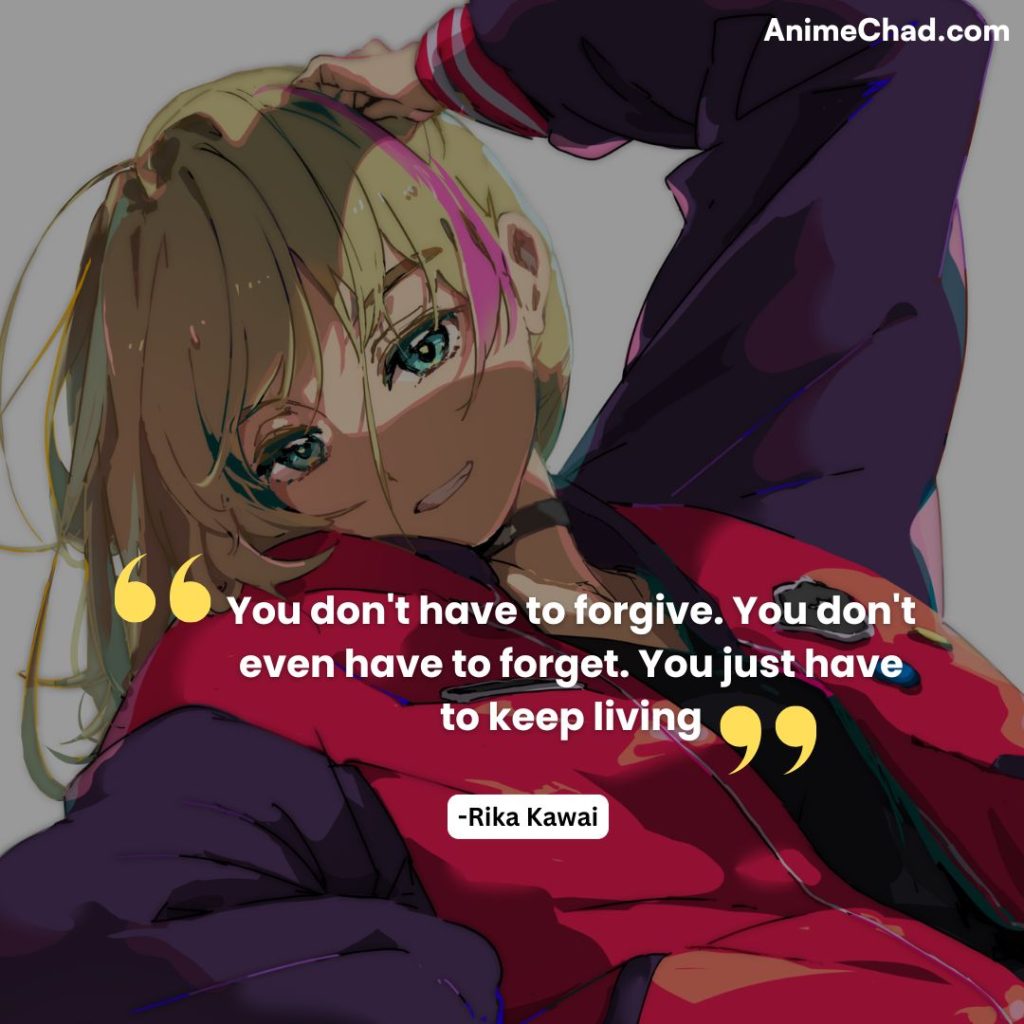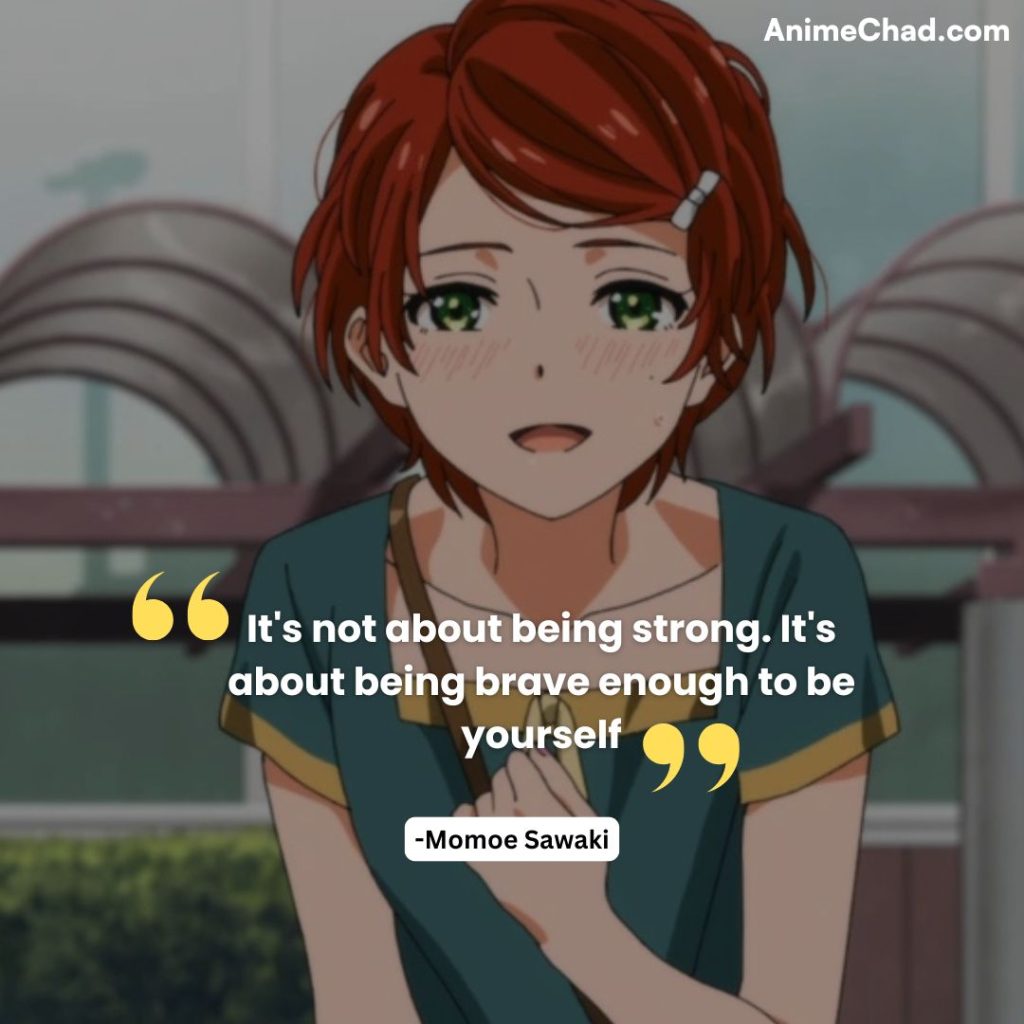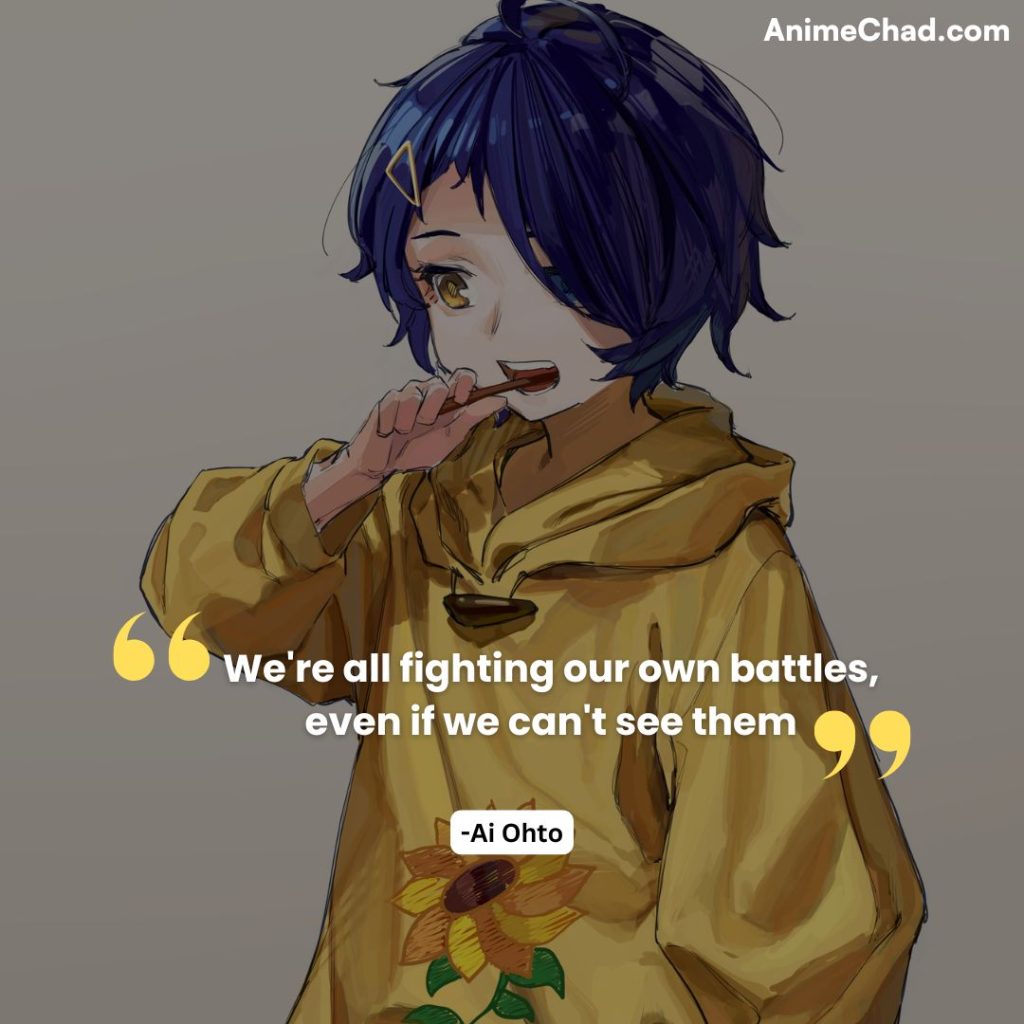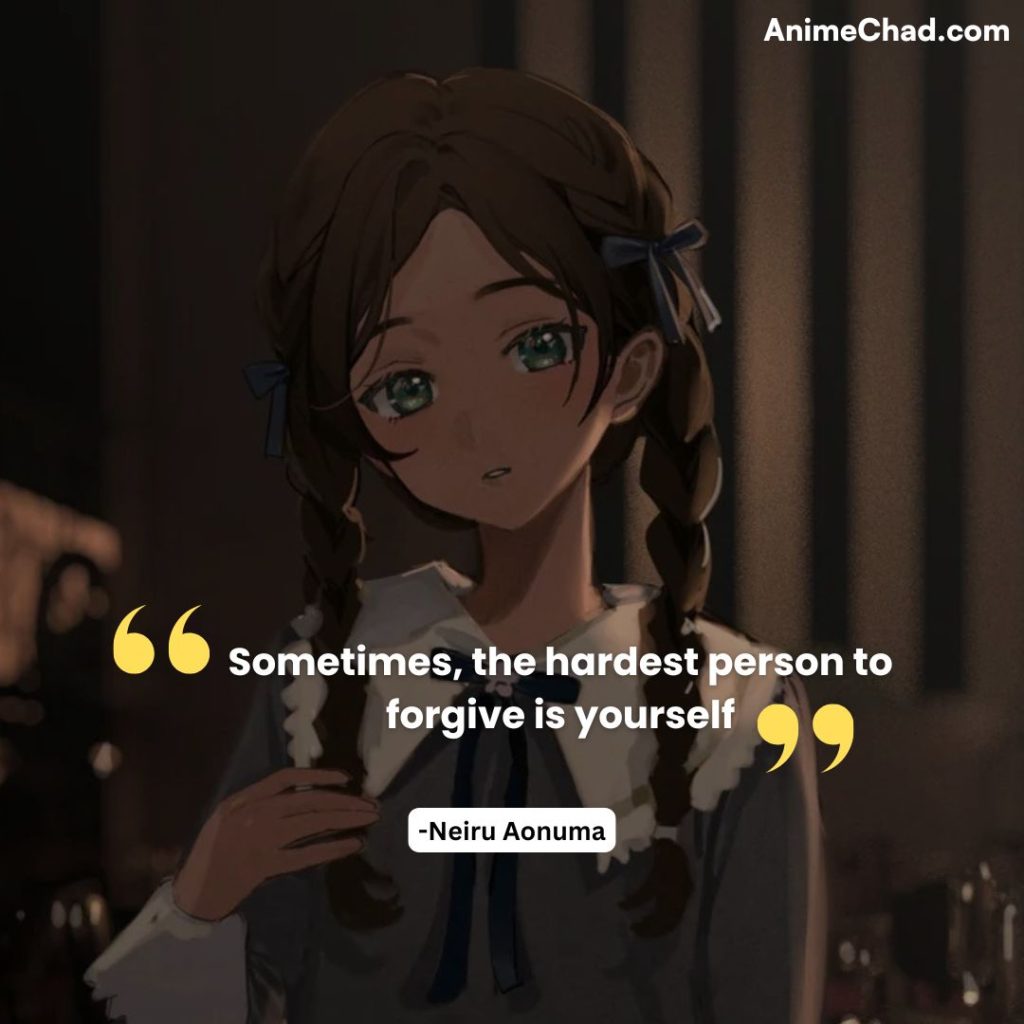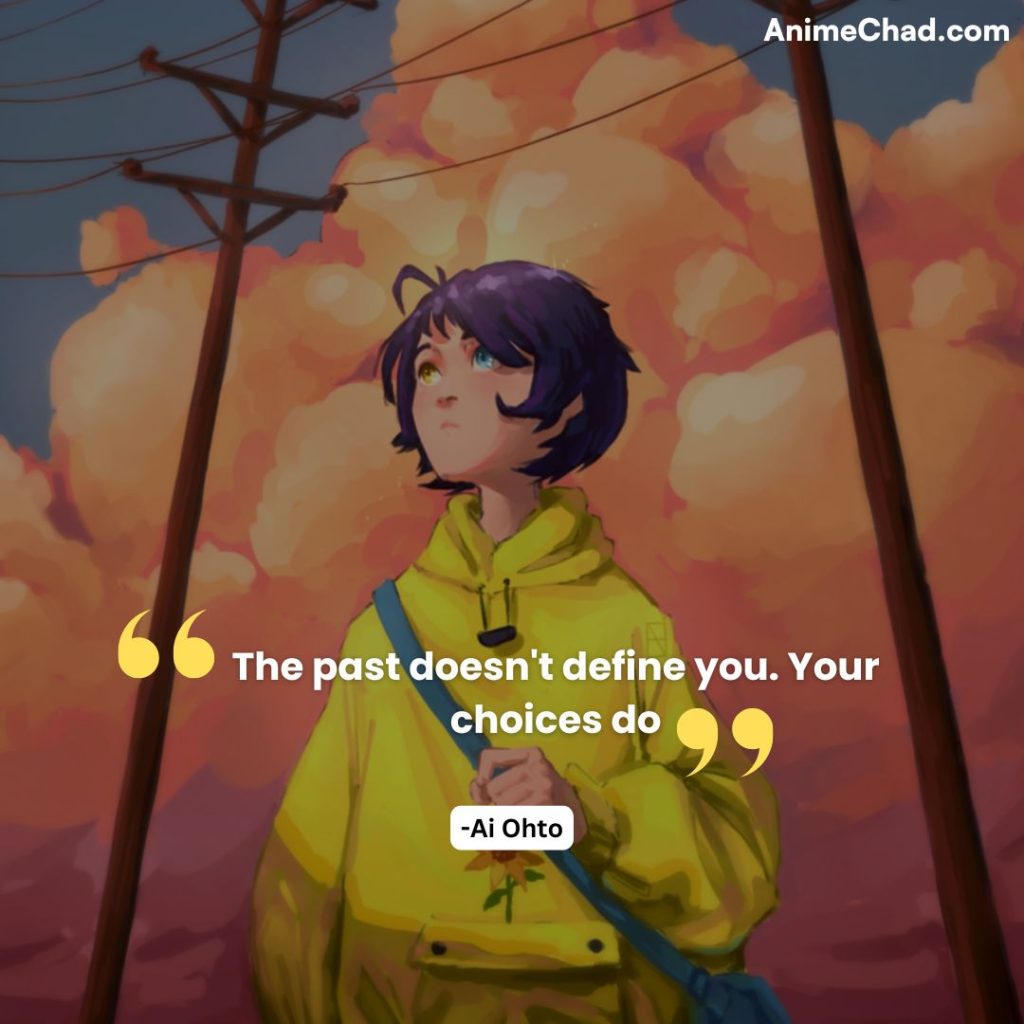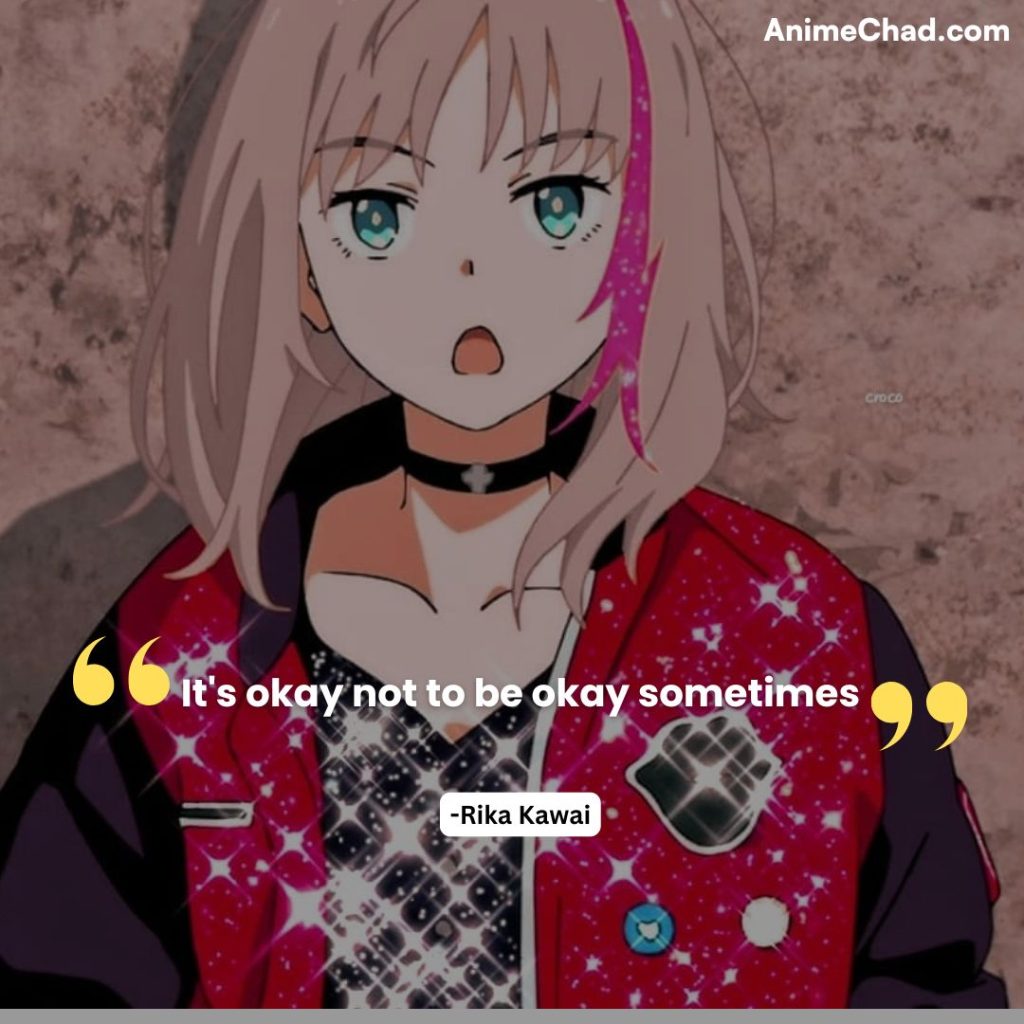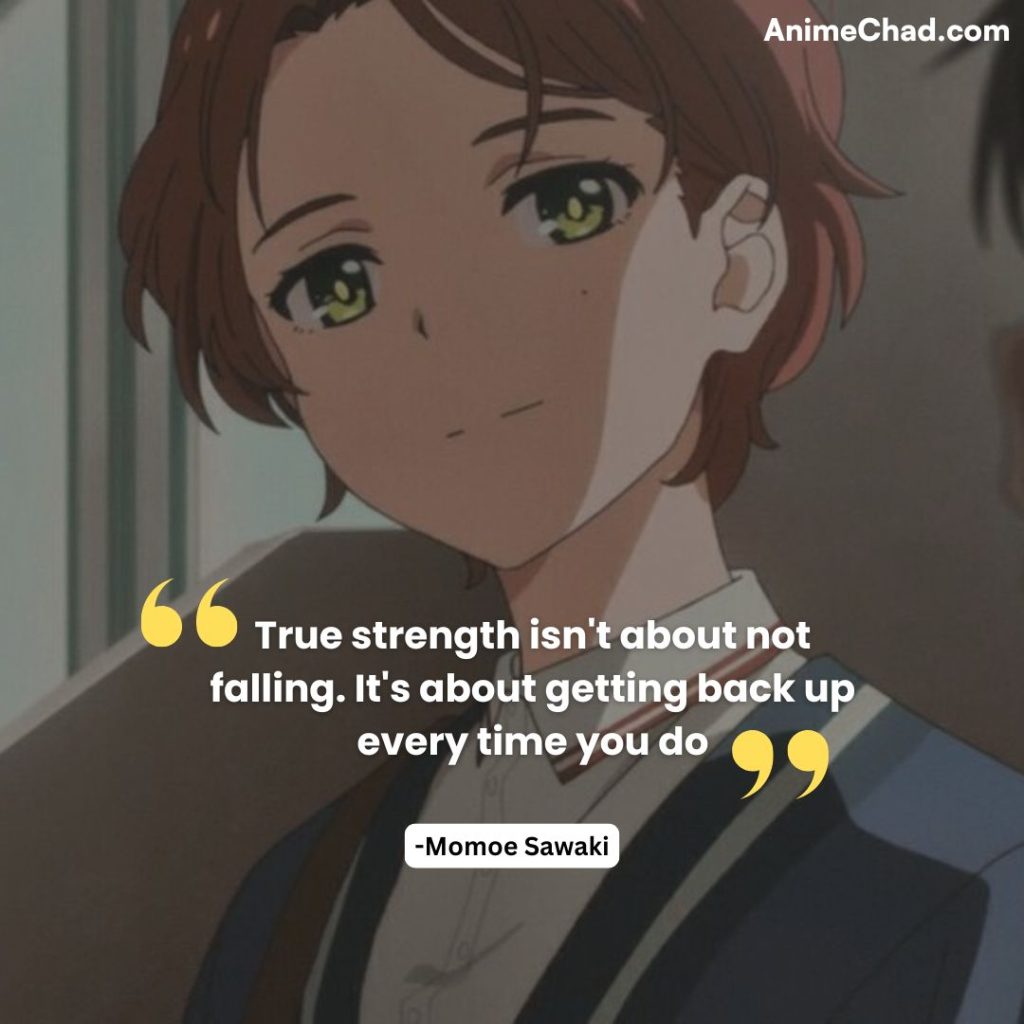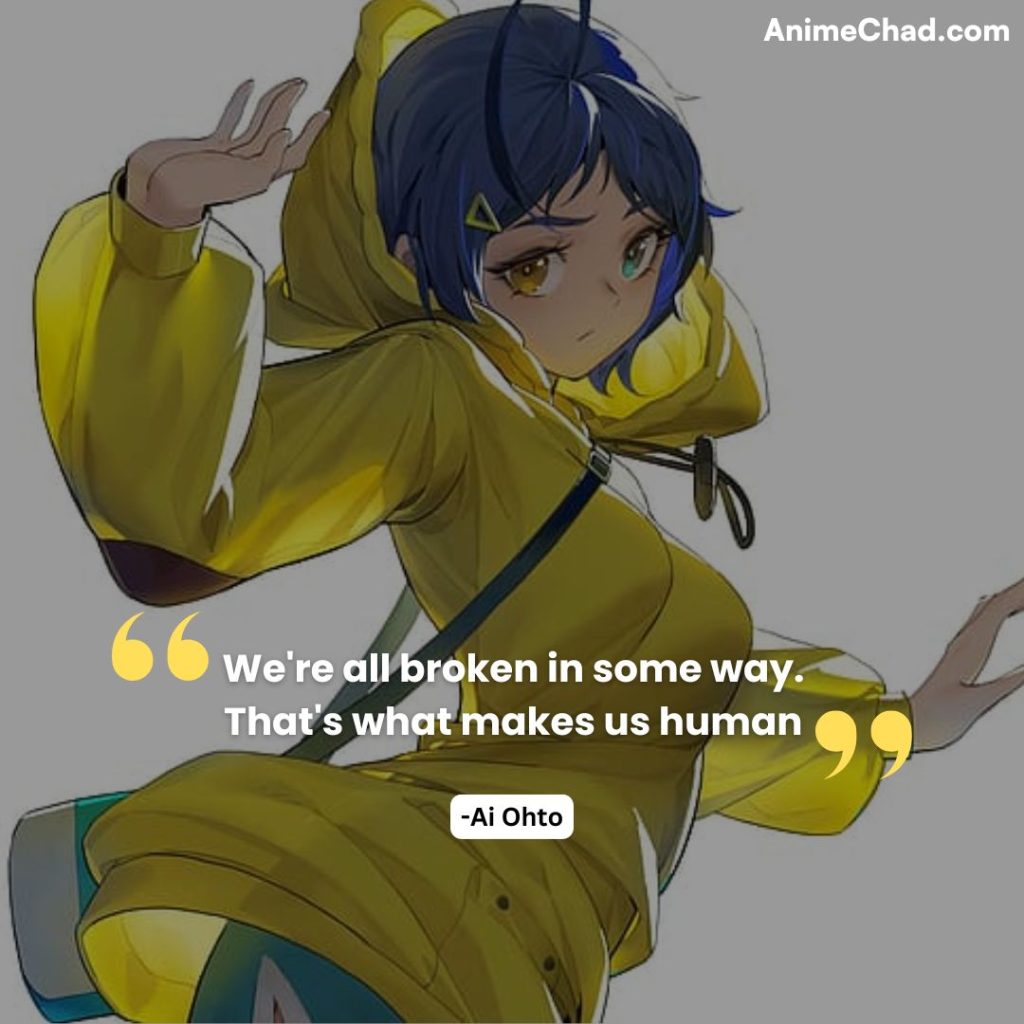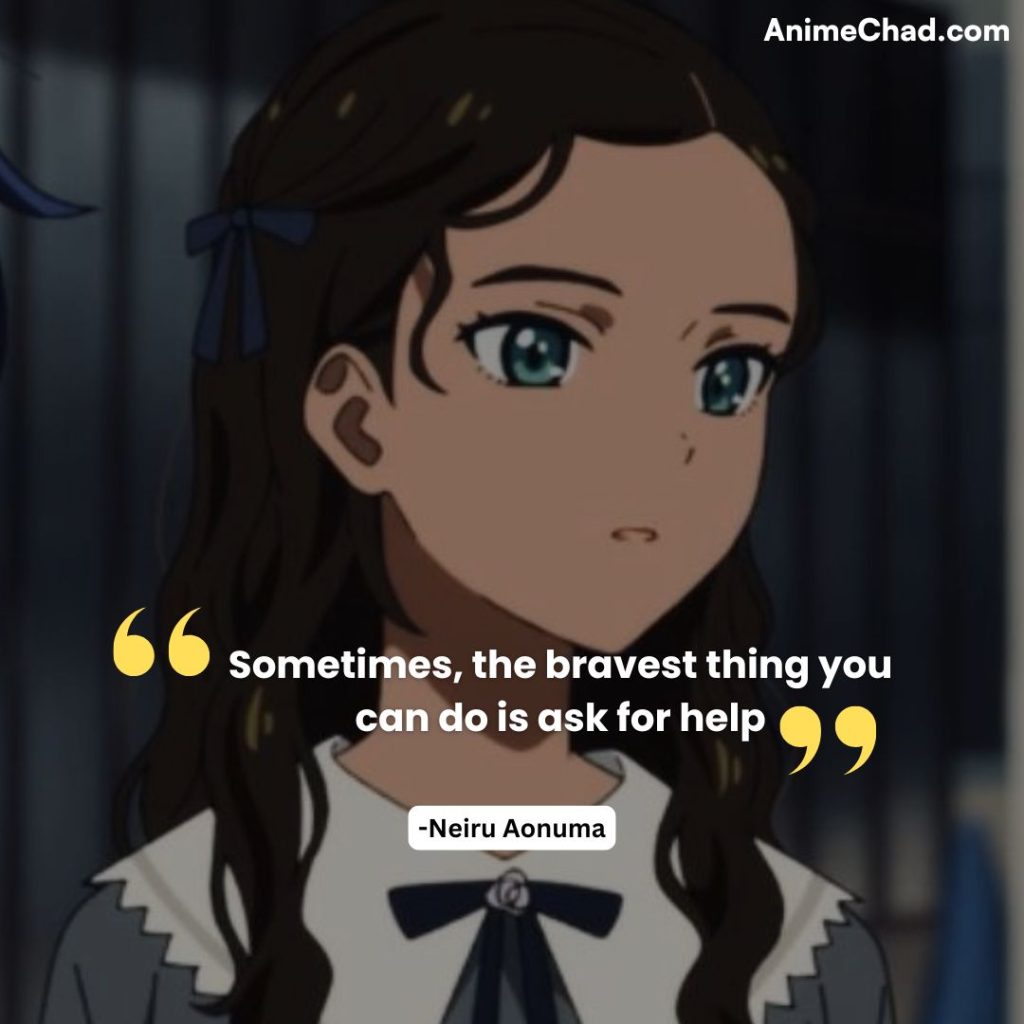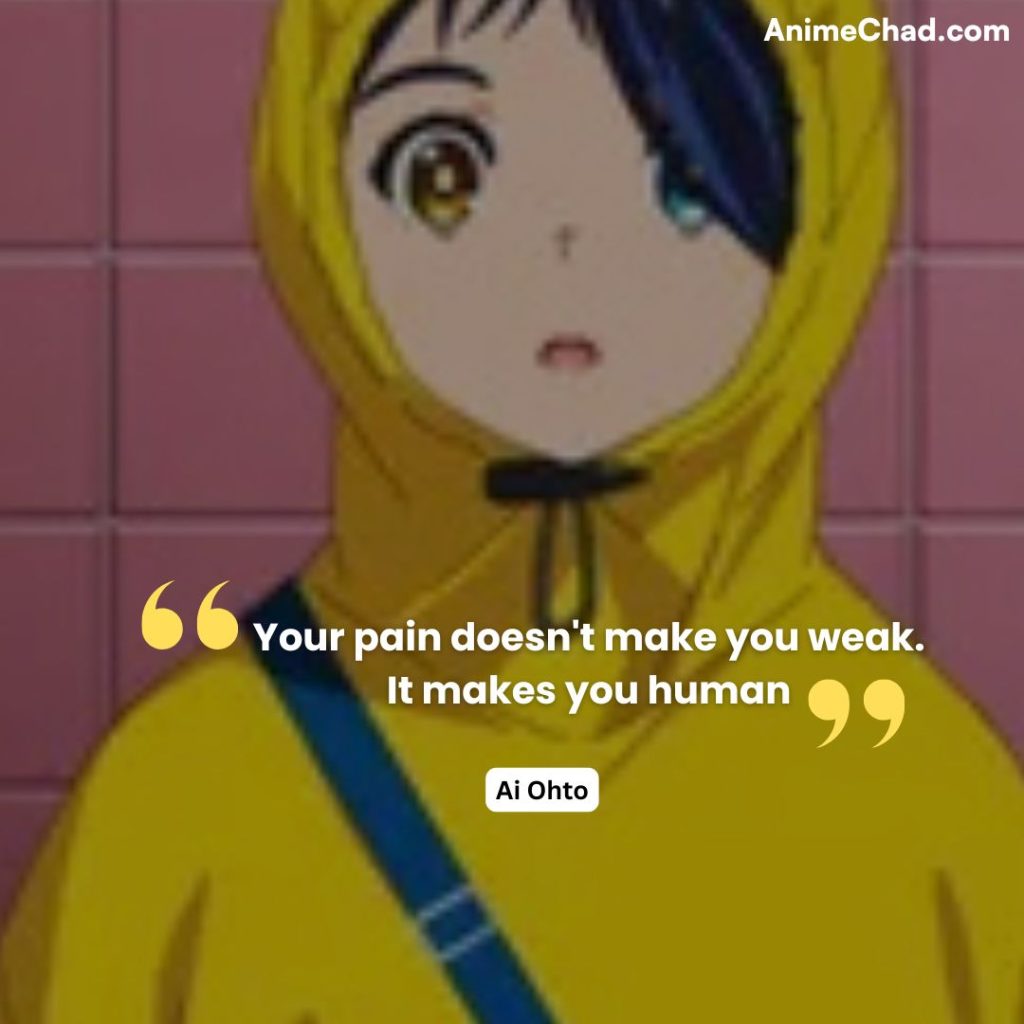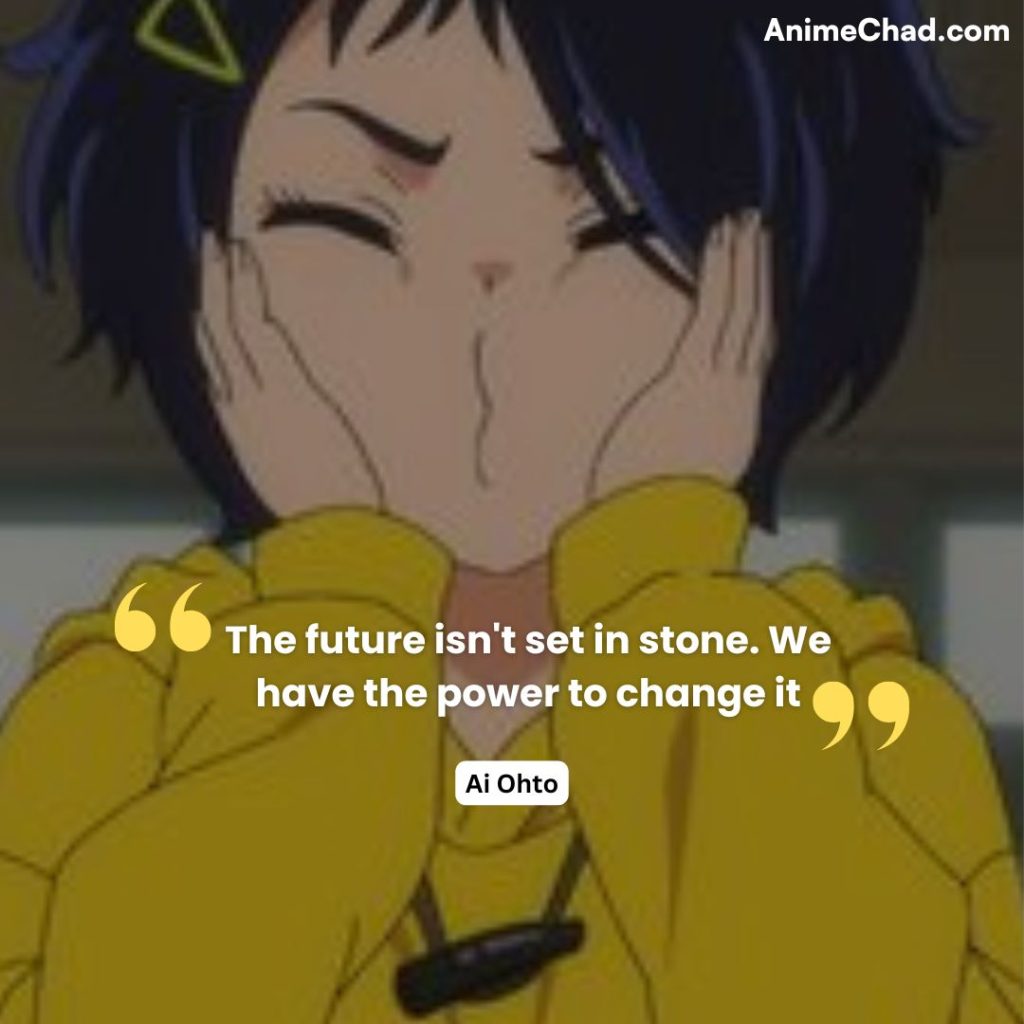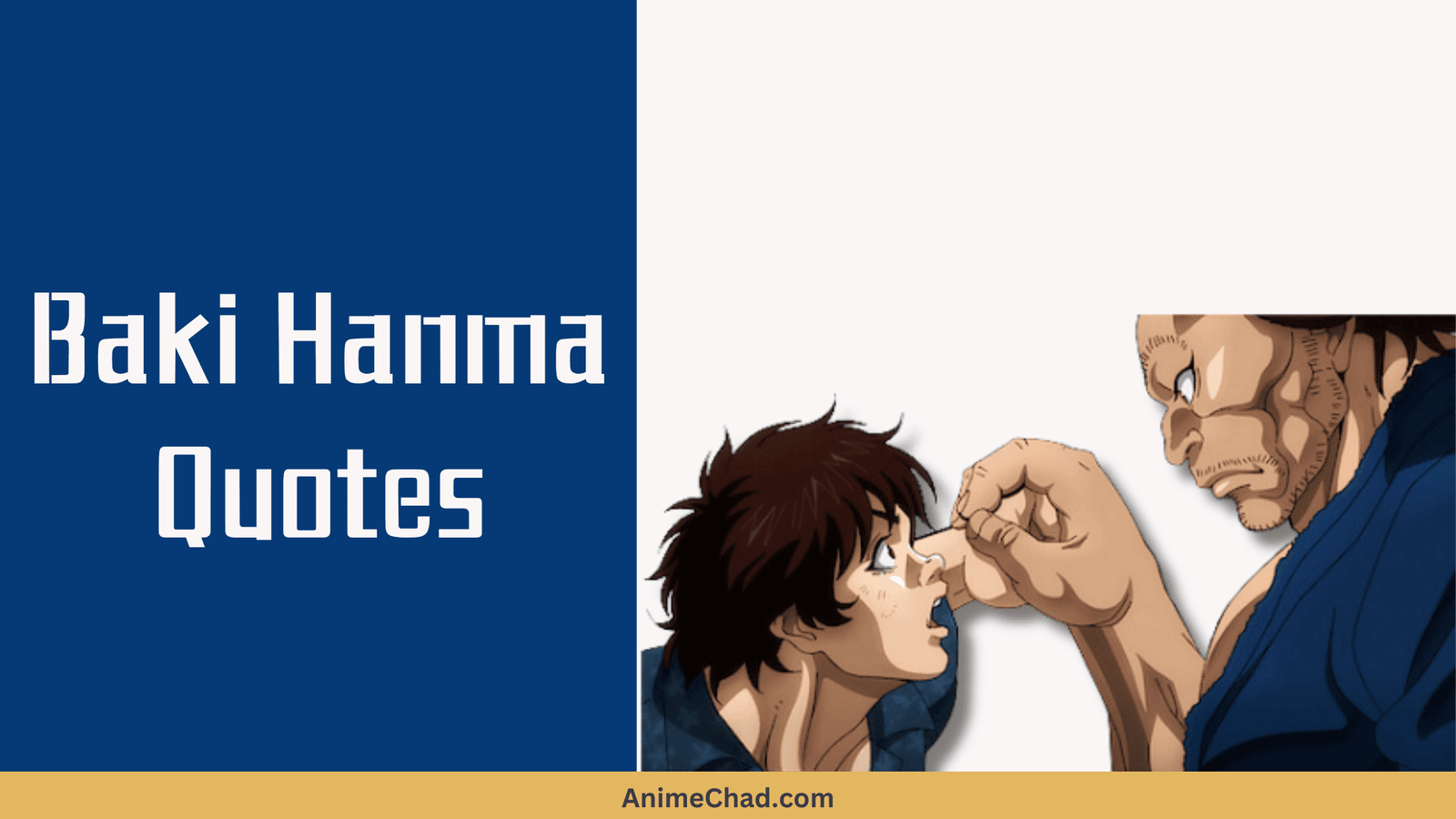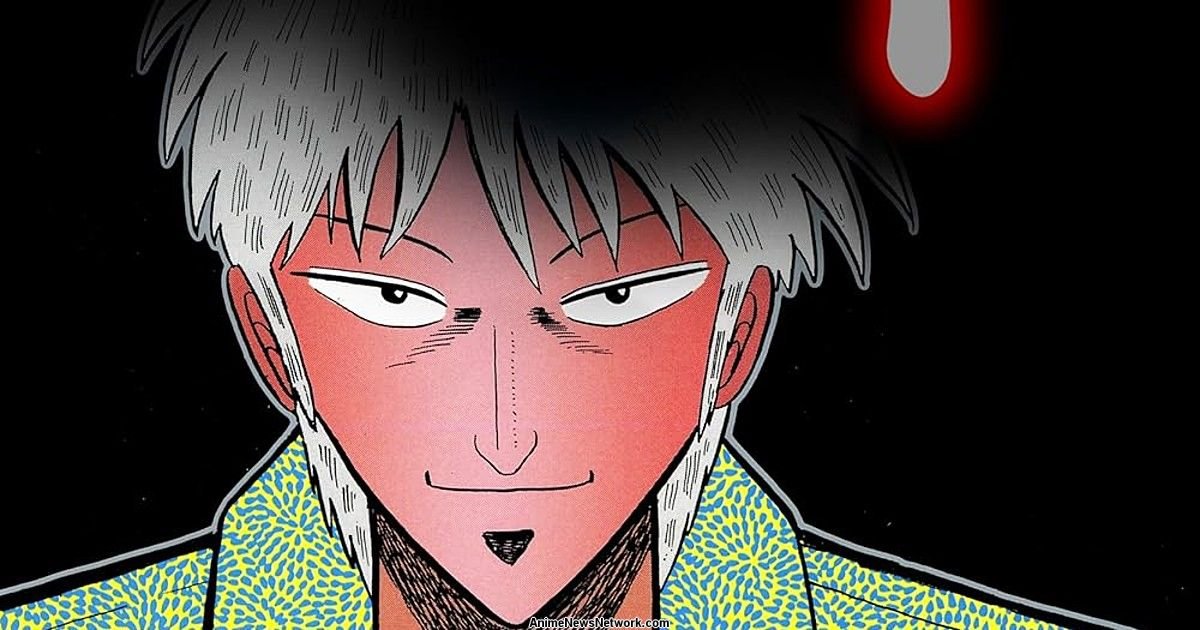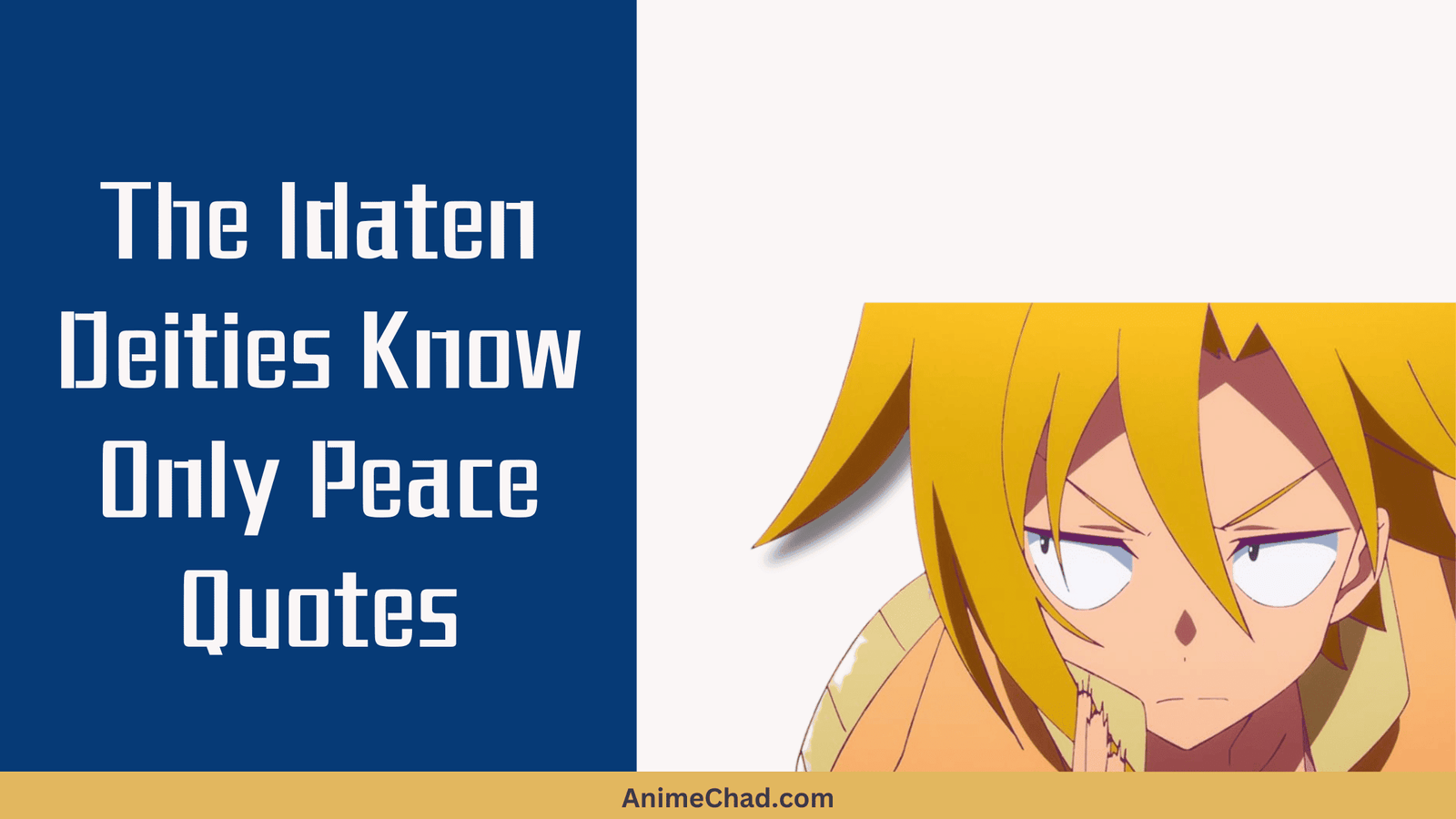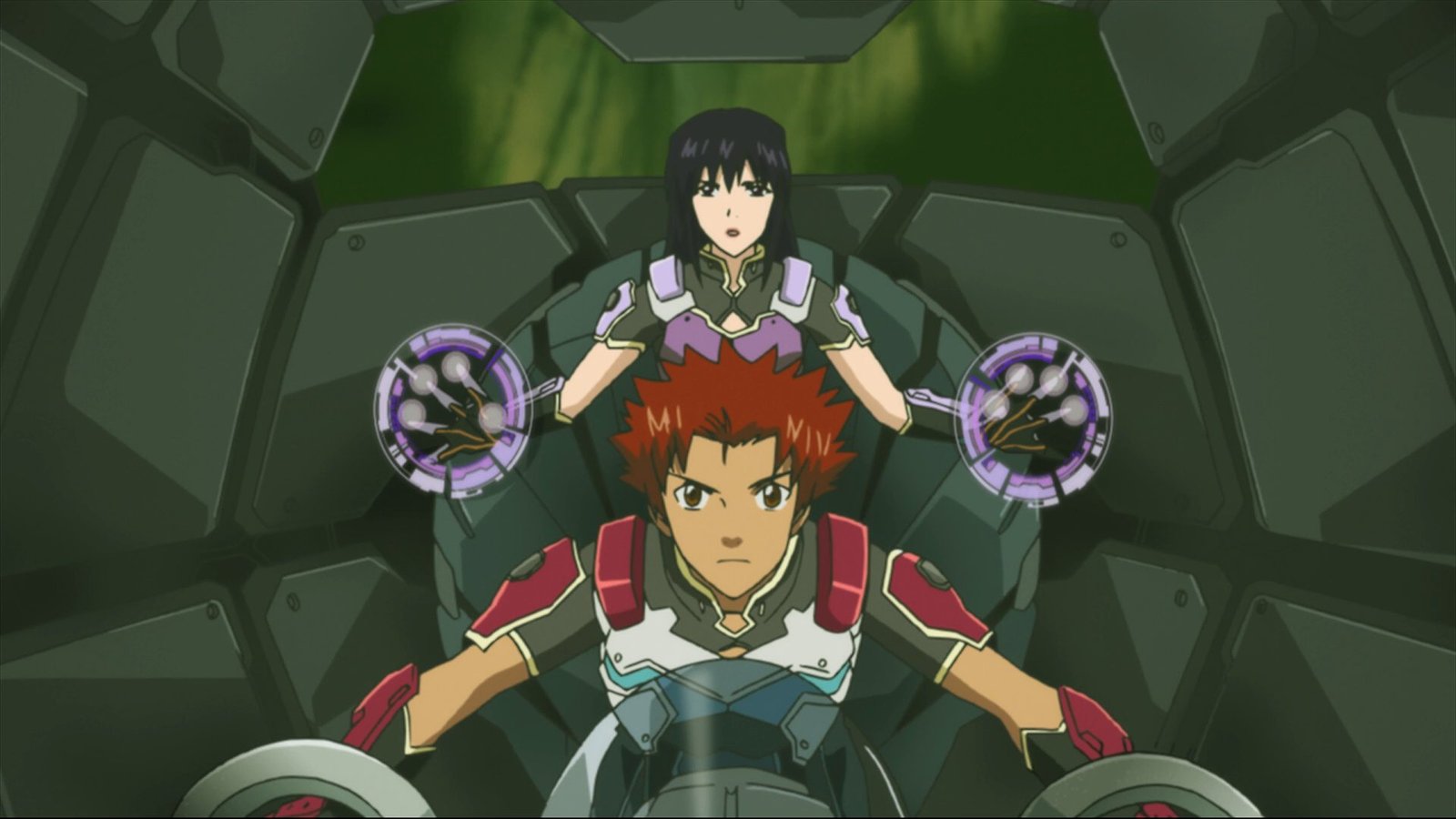Wonder Egg Priority follows Ai Ohto, a young girl who enters a mysterious dream world to save other girls from suicide.
The series explores themes of trauma, friendship, and self-discovery while tackling sensitive topics like bullying, abuse, and mental health.
This collection of quotes highlights the emotional journey of the characters and the profound messages within the series.
If you want to change the future, you only need to choose now. Now, believe in yourself and break the egg
(Episode 1: The Domain of Children)
Mysterious Voice
Sets the tone for the series, emphasizing personal agency and the power of choice in shaping one’s future.
I’m not a good girl. I’m a selfish, cowardly, detestable girl
(Episode 1: The Domain of Children)
Ai Ohto
Reveals Ai’s initial self-loathing and sets up her journey of self-acceptance and growth.
Even if the whole world turns against you, I’ll be your friend
(Episode 2: The Terms of Friendship)
Ai Ohto
Demonstrates Ai’s growing empathy and willingness to connect with others despite her own pain.
Girls who kill themselves are weak and selfish
(Episode 3: A Bare White Wing)
Rika Kawai
Rika’s harsh statement reflects her own struggles and defense mechanisms against confronting trauma.
I don’t want to die. I want to live
(Episode 4: Colorful Girls)
Momoe Sawaki
Momoe’s declaration marks a turning point in her character arc, embracing life despite her struggles.
Sometimes kindness can be more painful than cruelty
(Episode 5: The Girl Flautist)
Neiru Aonuma
Neiru’s insight highlights the complex nature of human relationships and the unintended consequences of good intentions.
We’re not here to be saved. We’re here to save someone else
(Episode 6: Punch Drunk Day)
Ai Ohto
Ai realizes the true purpose of their mission, emphasizing themes of empowerment and helping others.
It’s okay to run away sometimes. Running away and living are the same thing
(Episode 7: After School at 14)
Rika Kawai
Rika’s words offer a nuanced perspective on survival and coping mechanisms in the face of trauma.
I want to protect your smile
(Episode 8: The Happy Friendship Plan)
Momoe Sawaki
Reflects Momoe’s desire to support others and find purpose through helping those in need.
There’s no such thing as a painless lesson
(Episode 9: A Story No One Knows)
Neiru Aonuma
Neiru’s observation underscores the series’ theme of growth through adversity and confronting difficult truths.
Sometimes, the kindest thing you can do is be cruel
(Episode 10: Confession)
Rika Kawai
Rika’s paradoxical statement highlights the complexity of human relationships and the nature of true kindness.
We’re all searching for something we’ve lost
(Episode 11: An Adult Child)
Ai Ohto
Ai’s realization connects the main characters’ motivations and the universal human experience of loss.
The world is full of things that don’t go the way you want
(Episode 12: An Unvanquished Warrior)
Neiru Aonuma
Neiru’s pragmatic outlook reflects the series’ themes of resilience in the face of life’s challenges.
Sometimes, the only way to save someone is to let them go
(Episode 13: Goodbye, Cruel World)
Ai Ohto
Ai’s bittersweet realization marks her emotional growth and understanding of the complexities of helping others.
You don’t have to forgive. You don’t even have to forget. You just have to keep living
(Episode 7: After School at 14)
Rika Kawai
Rika’s advice offers a path forward for those dealing with trauma and painful memories.
It’s not about being strong. It’s about being brave enough to be yourself
(Episode 4: Colorful Girls)
Momoe Sawaki
Momoe’s words emphasize the importance of self-acceptance and authenticity.
We’re all fighting our own battles, even if we can’t see them
(Episode 9: A Story No One Knows)
Ai Ohto
Ai’s insight highlights the hidden struggles people face and the importance of empathy.
Sometimes, the hardest person to forgive is yourself
(Episode 11: An Adult Child)
Neiru Aonuma
Neiru’s reflection touches on themes of guilt and self-forgiveness central to the series.
The past doesn’t define you. Your choices do
(Episode 12: An Unvanquished Warrior)
Ai Ohto
Ai’s statement emphasizes personal agency and the power to change one’s path.
It’s okay not to be okay sometimes
(Episode 8: The Happy Friendship Plan)
Rika Kawai
Rika’s words offer comfort and normalize the struggle with mental health.
True strength isn’t about not falling. It’s about getting back up every time you do
(Episode 10: Confession)
Momoe Sawaki
Momoe’s insight reflects the series’ theme of resilience and perseverance.
We’re all broken in some way. That’s what makes us human
(Episode 13: Goodbye, Cruel World)
Ai Ohto
Ai’s realization emphasizes the universality of pain and the beauty of human imperfection.
Sometimes, the bravest thing you can do is ask for help
(Episode 6: Punch Drunk Day)
Neiru Aonuma
Neiru’s words challenge the notion of self-reliance and encourage seeking support.
Your pain doesn’t make you weak. It makes you human
(Episode 5: The Girl Flautist)
Ai Ohto
Ai’s statement offers comfort and validation to those struggling with trauma.
The future isn’t set in stone. We have the power to change it
(Episode 13: Goodbye, Cruel World)
Ai Ohto
Ai’s final realization encapsulates the series’ themes of hope, agency, and the potential for change.
